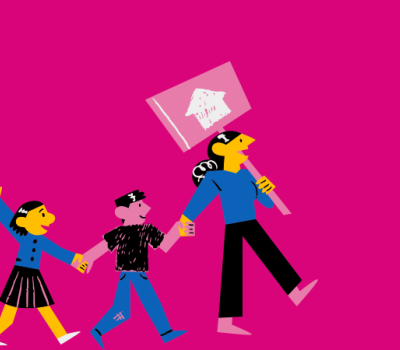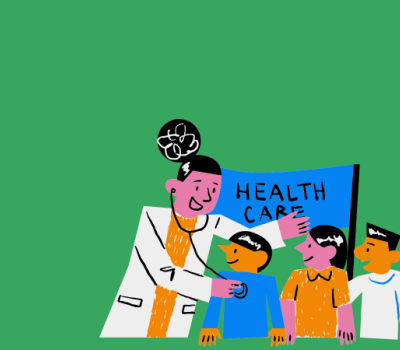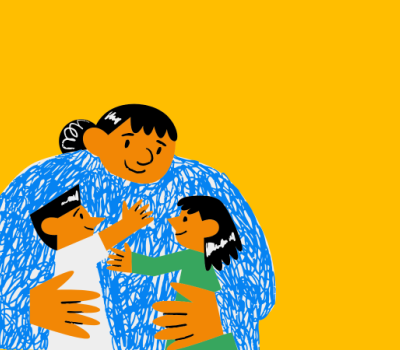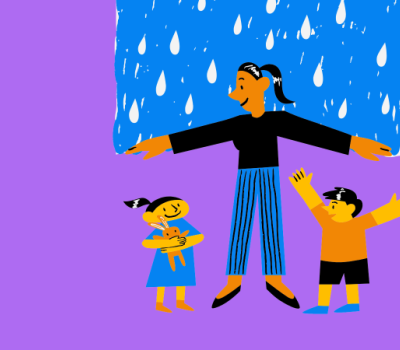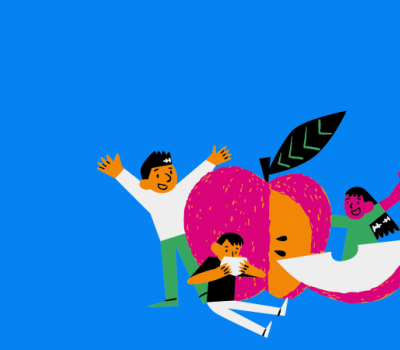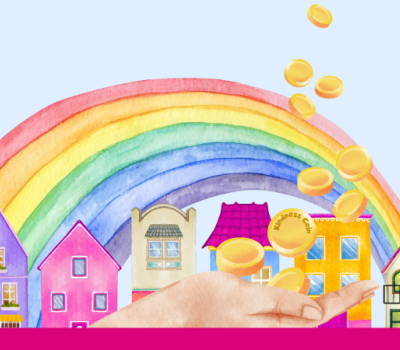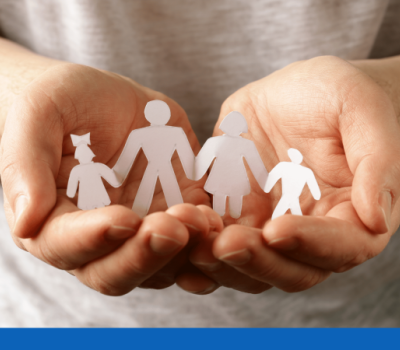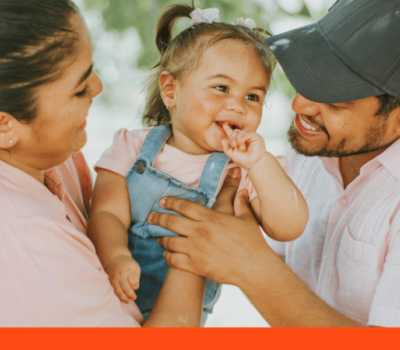Insights from Our Southern Utah Engagement Events
Medicaid is a lifeline for many families in Utah, especially in rural areas where access to healthcare is often limited. This year, we organized two Medicaid-focused engagement events in Southern Utah—one in Blanding and another in Moab—to better understand the unique challenges they face and to engage with local and statewide programs that can help meet their needs. These events provided invaluable insights into the disparities and barriers to healthcare access in rural Utah, reinforcing Medicaid's critical role in these areas.
Medicaid’s Role in Rural Utah
In rural Utah, Medicaid ensures that children and families can access essential care. For example, over a third of children in San Juan County and a quarter of children in Grand County are covered by Medicaid or CHIP, underscoring its importance for the next generation.
Medicaid also addresses critical disparities in mental health and substance use treatment. Rural Utah has limited mental health providers, but Medicaid funding supports telehealth initiatives and community-based programs that bring care to those who need it most. Additionally, Medicaid-funded transportation services are critical in regions like San Juan County, where residents on reservations may travel hours to reach the nearest healthcare facility. Utah Navajo Health Systems has a robust transportation system in the county, helping community members get to their next appointment.
Challenges and Opportunities in Rural Health
Rural Utah faces a web of interconnected challenges that hinder healthcare access and equity. Provider shortages are a critical issue, with only 7.59 primary care physicians per 10,000 residents in San Juan County. This shortage is exacerbated by the vast geographical distances residents must travel to access care, particularly for those living on reservations or in remote areas.
Intergenerational poverty continues to weigh heavily on San Juan County, where children face a higher risk of inheriting poverty as adults. This cycle perpetuates disparities in education, health, and economic opportunities, making Medicaid a crucial tool for breaking this cycle. Medicaid not only provides access to healthcare but also reduces financial strain, enabling families to allocate resources to other essential needs like housing and education.
Despite these challenges, opportunities for improvement exist. Local partnerships, such as the one with Blue Mountain Hospital and the local health department, offer a pathway to expand enrollment assistance and bring services closer to families in need. Expanding these initiatives and fostering collaboration between state agencies and local organizations can make a meaningful difference.
Expanding Our Reach to Southern Utah
Our Medicaid events have been co-developed with Stephanie Burdick to engage with cities and counties outside of Salt Lake County. Southern Utah, particularly San Juan and Grand counties, experiences higher rates of poverty and limited access to healthcare providers compared to urban areas.
Poverty and intergenerational poverty are pervasive issues, with 53.5% of children in San Juan County at risk of experiencing intergenerational poverty as adults. These statistics highlight the critical need for initiatives like ours to bridge gaps in healthcare access.
The Moab Community Roundtable
In Moab, we co-hosted a roundtable dinner with stakeholders, including the Moab Free Health Clinic, Southeast Utah Health Department, and Take Care Utah. This diverse group included community organizations, healthcare providers, state representatives, and residents who shared their perspectives on local healthcare challenges.
Key issues raised during the discussion included severe shortages of medical and dental providers. The region is served by only one dentist and orthodontist, leaving families with long wait times and limited access to dental care. Participants also highlighted the significant barriers families face in enrolling in Medicaid and other critical programs, compounded by a lack of enrollment assisters in the area. The roundtable also revealed a troubling lack of maternal care in the region. Community members emphasized the urgent need for maternal health services, with many expressing hope that local organizations like Comunidad Materna could bring resources to rural areas.
Stronger Together: Health and Community in Blanding
Our Blanding Stronger Together: Health and Community event brought families together and connected them with state and local resources. Hosted in partnership with Blue Mountain Hospital, the event focused on Medicaid, CHIP, and SNAP enrollment while providing opportunities for attendees to engage directly with the state Medicaid director.
Key Insights
Transportation Support
ModivCare helped five families resolve account issues and secure access to non-emergency medical transportation. In a county where traveling to medical appointments often takes hours, this service proved to be a lifeline for many families.
On-Site Enrollment
Families and individuals received hands-on assistance to troubleshoot issues with their benefits. Many successfully enrolled in Medicaid, CHIP, or SNAP programs during the event.
Community Insights
Blue Mountain Hospital highlighted the high number of residents losing Medicaid coverage during the unwinding period. This finding reinforced the critical need for ongoing enrollment support in San Juan County, especially in smaller towns.
Community Story
Shay, an avid lover of the outdoors who’s visited many of our nation’s beautiful parks, came to our event after spotting the flyer at her local grocery store. Currently experiencing homelessness and enrolled in Medicaid, she explained, “I wanted to come, even though a lot of people might feel ashamed seeking help.” For Shay, taking that step was an act of courage, a way to connect not just for herself but for those around her. “One point to make is that everyone has a story. I've not always been homeless. I have value. I haven't chosen a lifestyle. I've just adapted to what's here for me,” she shared, expressing the resilience and self-worth that brought her to the event.
At the event, Shay gathered information from different tables and expressed how empowered she felt by the resources she discovered. “Even if some of these things don’t apply to me directly, I know I’ll be able to share them with others,” she said with a sense of purpose. Her words reflected a deep understanding of how resources can ripple through a community, touching lives in unexpected ways.
Shay also raised the importance of investing in supports that truly address the needs of people experiencing homelessness, emphasizing that while health coverage is vital, so too is access to basics like showers, food, and spaces that allow people to feel dignity. “It’s not just about health coverage,” she explained, “but about having the essentials that help us live and feel human. We need more investment in the whole picture—not just for ourselves, but for the strength of the community.” Her perspective highlighted the necessity of a holistic approach to addressing homelessness, one that provides foundational resources for stability and growth.
What excited Shay most, though, was learning about opportunities to become more involved. Hearing that she could participate in advocacy efforts—like joining the Beneficiary Advisory Committee—made her feel valued and included. “It felt good knowing I can be part of something like that,” she said.
Shay’s story reminds us that events like these are not just about sharing resources but also about fostering a sense of belonging and empowerment. It’s about breaking down the shame and stigma people often feel when seeking help and showing them they have a voice in shaping the systems that serve them. Shay’s courage and generosity reflect the spirit of community we aim to build—and we are honored to have her as part of it.
Through Shay, we’re reminded that every person is so much more than their current struggles. Our stories and experiences shape us, but they don’t define us. Shay’s resilience and commitment to helping others prove that each of us carries a unique value and potential, and that together, we create a community where we’re all seen for who we truly are—far beyond any single chapter in our lives.
Investing in Community-Based Organizations
One of the most effective ways to address the challenges facing rural Utah is by empowering the community-based organizations already embedded within these regions. These organizations are uniquely positioned to assist with Medicaid and CHIP enrollment and renewals, as they have deep ties to the communities they serve and understand the cultural and logistical barriers families face. Navigating these programs can be overwhelming for eligible families, especially when they face language barriers, lack access to reliable internet, or encounter complex bureaucratic systems. Community-based organizations are trusted messengers that can bridge these gaps, but they require funding to sustain and expand their efforts.
In Southern Utah, for example, organizations like the Moab Free Health Clinic and the Southeast Utah Health Department play a crucial role in supporting families. With additional funding, these groups could scale their efforts to provide more robust Medicaid and CHIP assistance while addressing other critical health disparities, such as dental and maternal health care gaps. By easing the complicated processes for families and focusing on areas with the greatest need, such investments can ensure that every eligible child and family has access to the health coverage they deserve.
Looking Ahead
As we continue our work, we are committed to addressing gaps in our rural areas. Medicaid is more than just a health coverage program—it is a lifeline for rural communities, supporting families and sustaining local healthcare systems. The lessons from these events reaffirm the importance of Medicaid in mitigating disparities and ensuring that all Utahns, regardless of where they live, have access to quality healthcare. By addressing systemic barriers and fostering collaboration, we can build a stronger, healthier future for rural Utah.
Acknowledgments
We extend our immense gratitude to the organizations and individuals who made these events possible:
Stronger Together: Health and Community
Stephanie Burdick
Blue Mountain Hospital
The Department of Health and Human Services
The Department of Workforce Services
Desert Rivers Credit Union
Disability Law Center
ModivCare
Rocky Mountain Care
Root for Kids
San Juan County Public Health Department
Take Care Utah
United Way Help Me Grow
University of Utah School of Medicine
Utah Navajo Health Systems
Utah Food Bank - Southeastern Utah Utah Vocational Rehabilitation
and all the amazing volunteers!
The Moab Community Roundtable
Stephanie Burdick
The Department of Health and Human Services
Southeast Utah Health Department
Moab Free Clinic
Take Care Utah




